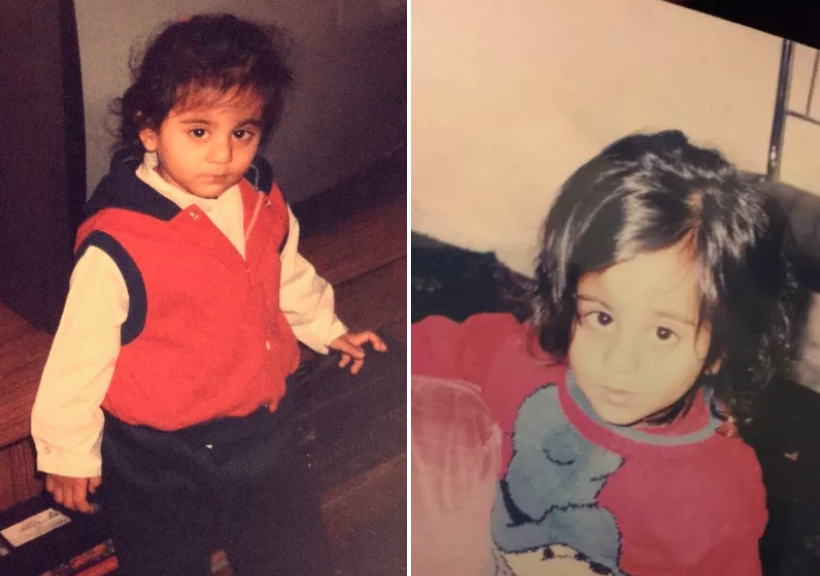
The British government has said it is unaware how many intersex children — those born with bodies that do not conform to standard notions of male or female — are being subjected to surgeries on the NHS, BuzzFeed News can reveal.
These include operations for which there is no medical need and where no consent has been obtained from the patient. It can lead to young patients effectively being assigned a sex that they may not identify with.
When approached about the scale of such operations, the Department of Health initially directed BuzzFeed News to NHS England and NHS Digital. After NHS England admitted it did not have the information, the department then revealed it "wouldn't have it either" if the NHS didn't.
NHS Digital, meanwhile, said they do not collect this information — only the number of specific procedures overall, many of which, such as the removal of parts of genitalia or entire internal reproductive organs, may not be because the patient is intersex.
This lack of data exists despite a groundswell of condemnation of unnecessary surgeries by intersex advocates in recent years. The UN Convention Against Torture and the World Health Organisation have also publicly opposed procedures where there is no medical basis but, rather, an attempt to "normalise" the infant. In 2017, a BBC investigation into the treatment of intersex children at Great Ormond Street Hospital concluded it was "failing" such patients and "not meeting care standards".
A huge range of interventions can be performed on minors, including clitoral reductions, the removal of gonads, vaginal constructions, hysterectomies, penile augmentation or construction, the repair of undescended testicles, and, previously, clitorectomies — the entire removal of the clitoris. Some operations, in particular those carried out on the urethra, can require multiple further operations over decades.

The revelation that neither the NHS nor the government knows the scale of such operations follows the publication last month of the story of Irene Kuzemko, who told BuzzFeed News she only discovered she was intersex at age 25 after watching a video about various intersex variations.
By subsequently requesting her medical files, Kuzemko learned that an internal testis (and a fallopian tube) that she did not know she had had been removed without her knowledge or consent — and that she, in fact, had XY chromosomes.
Although Russian Ukrainian, her experiences echo those of other intersex people across the world, including in Britain and the US. Many intersex adults have spoken out about operations being performed on them without their consent, about being assigned a sex before they could say which sex befits them, and also the lack of explanations given to them by doctors about their intersex variation.
A British intersex man, Anick, revealed to BuzzFeed News in 2017 that he was operated on throughout his childhood but said, “I didn’t really understand anything. Nothing was explained to me, so at a young age I didn’t know what was going on — you feel fine but you are at the hospital.”
Kuzemko was assigned female at birth, which happened to align with her gender identity, but many intersex children are wrongly assigned a sex, often because surgeons decide that one or other set of genitals is more achievable with the existing genitalia. This can prompt such children in adulthood to require surgery to transition to the other sex, befitting their gender identity.
“I want to save intersex children in the future from things I had to go through myself,” Kuzemko told BuzzFeed News after cofounding an advocacy group. “Nobody deserves to have secrets kept from them... So many intersex people experience secrecy, lies, medicalization of their bodies, human rights violations, unnecessary surgeries, and medical interventions."

Last year, the government's equalities office began meeting with intersex experts and advocates in an attempt to better understand individuals' experiences before consulting more broadly on how best to respond to the medical, legal, social, and psychological needs of this minority. The UN estimates 1.7% of the population have some form of intersex variation, which can manifest in hormones, chromosomes, genitals, or reproductive organs not all conforming to male or female norms.
Intersex UK told BuzzFeed UK last year, "Young people must be afforded the basic human right to decide autonomously on how they would like their body to feel and function. A child needs to be able to live healthily, happily and safely and not subject to harmful practice, sterilisations, sex assignments and other harmful practices which typically infringes horrendously on the quality of their childhood."
